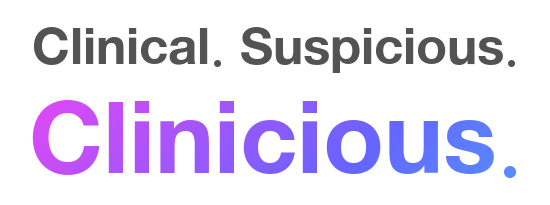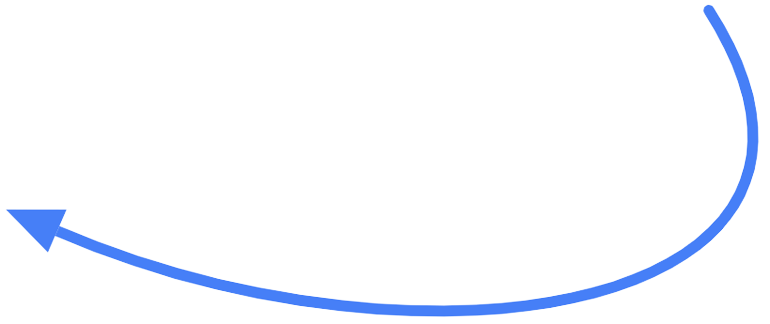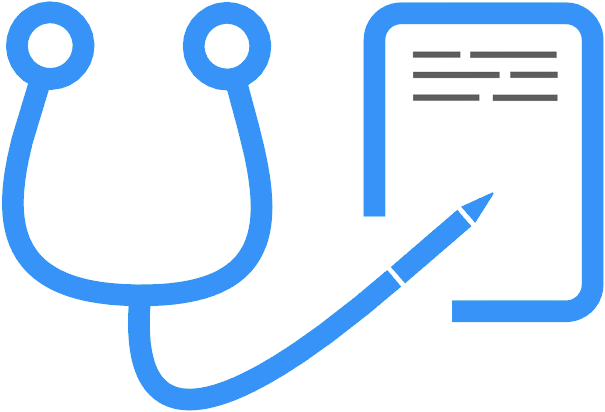
Healthcare in the
eyes of a skeptic.


I’m Nathan Costiuc.
(RN, MSN, APRN, FNP-BC)
Early in my career, I was captivated by the strangeness, brokenness, artfulness, and touch of modern medicine.
Clinicious is my take on those ideas.
Here you’ll find contrarian views on the healthcare industrial complex, musings on why providers are weirdos, and analysis of the values that underpin what we do.
Themes that have shaped my thinking.
While I have a higher level of training and prescriptive authority, I believe the philosophy of nursing contains truths that are not revealed in the foundational principles of medicine.
For me, intellectual humility is not something to pursue. It’s something that rudely confronts you after encountering the incredible complexity the human body. I’ve been dealing with this from my first day on the floor.
Contrary to popular belief, advances in health have not come from better therapies or medical interventions, but from a better understanding of the body’s own ability to heal itself. It’s a good reminder in the face of medical arrogance.
You can’t think of anything that is not first filtered through your overall conception of existence. My worldview is rooted in Christian faith and its rich history of modern, rational thought.
*psssst*
My newsletter is a place for early access to my essays, curated links to other insightful corners of the internet, and an opportunity for community-driven feedback and dialogue.
*psssst*
My newsletter is a place for early access to my essays, curated links to insightful corners of the internet, and an opportunity for community-driven feedback and dialogue.

Yeah, but who are you?

An ambulatory human male. A Nurse Practitioner. A husband and a dad.
In terms of my career, I began like many others did – working the floor as your garden variety tele/med-surg nurse (I really wanted to work in the ER, but such is life for the new nurse).
I was great at my job and loved overcoming the challenges of modern healthcare with my patients and helping them navigate through the incredible complexities therein. And yet, that’s a strange thing to love. Isn’t healthcare supposed to be an opportunity instead of a challenge? Why should you have to work so hard to get patients to just barely understand what the next step is?
It may help at this point to inject some context.
#1: I’m meticulous.
#2: See number one.
You would think that a skill like that would be great for patient care. Well, you’re right, it is. But for me, it came at the cost of my trust in the system I was working in. Why?
The things I was being asked to be meticulous about had little to nothing to do with actual patient care:
…incident reports designed mostly to protect the hospital in case of litigation.
…copious documentation in the cash register electronic health record to make sure the hospital got reimbursed for services.
…forms designed to blame the patient in case they fell down.
…chasing doctors who had too many patients or obligations to return my calls.
When I was in school to become a nurse, I was told the average amount of time spent documenting was 4 hours out of a 12 hour shift.
That’s incorrect. It’s more.
To make it worse, the r’aison detre for all the aforementioned nonsense had nothing to do with actually getting better (which actually accounted for little of any given shift’s efforts).
And since I’m meticulous, I had a hard time purposing that morally-driven detail-oriented nature to things I didn’t believe in (or not as a matter of first importance, anyway).
My first few years on the floor (which, by the way, is a great place to see the healthcare machine at peak nonsense) are what put a bad taste in my mouth for what we actually do for patients in our healthcare industrial complex.
In short, it didn’t feel like much.
And with how confused most patients were about their own situation, it seemed to me that anyone who got better (and many of our frequent fliers never did) did so despite us, rather than because of us. And that’s not even mentioning the deadly and insanely prevalent nature of medical errors.
At the same time, I have genuinely loved how weird a career in health has been: Complete strangers ask you very personal questions. Doctors struck me as odd and/or mean people – at least a standard deviation moreso than the general public. Hospitals are the penultimate examples of eery liminal spaces, especially at 3 in the morning. Honestly, the whole thing gives Black Mirror.
My inherent skepticism, being faced with the wrongs of modern healthcare, and my appreciation for its oddities are the crucible where so many of my ideas have been formed.
My hope is to ask sincere questions and be honest about the problems we face so we can genuinely explore a better way forward. Getting to see meaningful changes in healthcare usually take the lifetime of the person who wants to see them.
So let’s see if we can fix what’s wrong with us. Let’s start asking the right questions.
 An ambulatory human male. A Nurse Practitioner. A husband and a dad.
An ambulatory human male. A Nurse Practitioner. A husband and a dad.
In terms of my career, I began like many others did – working the floor as your garden variety tele/med-surg nurse (I really wanted to work in the ER, but such is life for the new nurse).
I was great at my job and loved overcoming the challenges of modern healthcare with my patients and helping them navigate through the incredible complexities therein. And yet, that’s a strange thing to love. Isn’t healthcare supposed to be an opportunity instead of a challenge? Why should you have to work so hard to get patients to just barely understand what the next step is?
It may help at this point to inject some context.
#1: I’m meticulous.
#2: See number one.
You would think that a skill like that would be great for patient care. Well, you’re right, it is. But for me, it came at the cost of my trust in the system I was working in. Why?
The things I was being asked to be meticulous about had little to nothing to do with actual patient care:
…incident reports designed mostly to protect the hospital in case of litigation.
…copious documentation in the cash register electronic health record to make sure the hospital got reimbursed for services.
…forms designed to blame the patient in case they fell down.
…chasing doctors who had too many patients or obligations to return my calls.
When I was in school to become a nurse, I was told the average amount of time spent documenting was 4 hours out of a 12 hour shift.
That’s incorrect. It’s more.
To make it worse, the r’aison detre for all the aforementioned nonsense had nothing to do with actually getting better (which actually accounted for little of any given shift’s efforts).
And since I’m meticulous, I had a hard time purposing that morally-driven detail-oriented nature to things I didn’t believe in (or not as a matter of first importance, anyway).
My first few years on the floor (which, by the way, is a great place to see the healthcare machine at peak nonsense) are what put a bad taste in my mouth for what we actually do for patients in our healthcare industrial complex.
In short, it didn’t feel like much.
And with how confused most patients were about their own situation, it seemed to me that anyone who got better (and many of our frequent fliers never did) did so despite us, rather than because of us. And that’s not even mentioning the deadly and insanely prevalent nature of medical errors.
At the same time, I have genuinely loved how weird a career in health has been: Complete strangers ask you very personal questions. Doctors struck me as odd and/or mean people – at least a standard deviation moreso than the general public. Hospitals are the penultimate examples of eery liminal spaces, especially at 3 in the morning. Honestly, the whole thing gives Black Mirror.
My inherent skepticism, being faced with the wrongs of modern healthcare, and my appreciation for its oddities are the crucible where so many of my ideas have been formed.
My hope is to ask sincere questions and be honest about the problems we face so we can genuinely explore a better way forward. Getting to see meaningful changes in healthcare usually take the lifetime of the person who wants to see them.
So let’s see if we can fix what’s wrong with us. Let’s start asking the right questions.
(or check out some of the hot takes below)
